The hidden message in Hammond’s EU speech
- Published
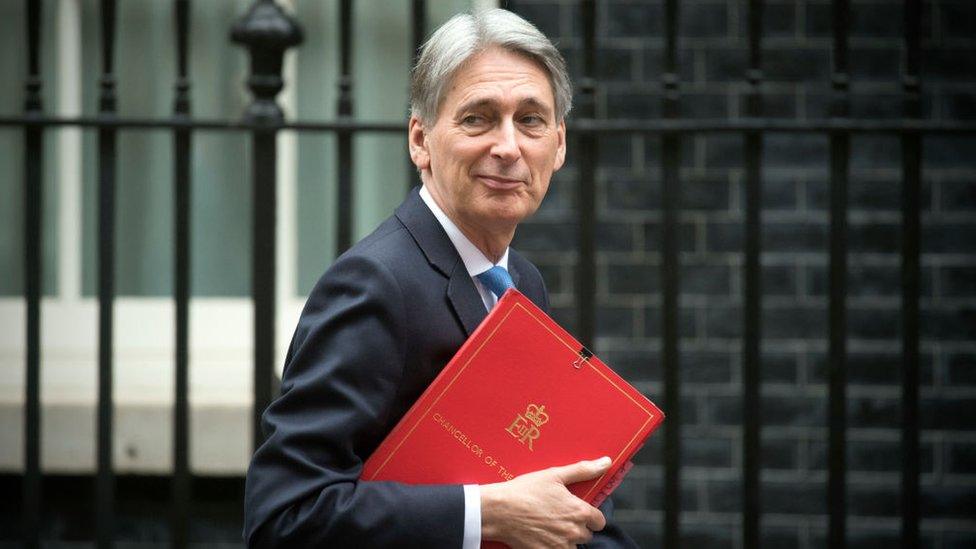
There is one vital paragraph to pay particular attention to in the speech by Philip Hammond on Wednesday.
Its significance should not be under-estimated for it is about one of the few sectors where the UK has a substantial trade surplus with the European Union - financial services.
It is the sector which Britain wants to be a key part of any ambitious free trade deal with the EU.
And the EU, so far, suggests it won't be.
Blast from the past
In his speech on UK-EU co-operation post-Brexit, the Chancellor will refer to past attempts at forging a free trade agreement between the US and Europe.
"The EU itself pursued ambitious financial services co-operation in its proposals for TTIP [the now aborted Trans-Atlantic Trade and Investment Partnership]," Mr Hammond will say.
"Which it described as a partnership that would be: 'more than a traditional free trade agreement'."
Mr Hammond is arguing that if the EU tried it before with a nation which doesn't have regulatory alignment on financial services - America - then surely it can do so with a country that it at present does - the UK.
But the Chancellor is also saying a lot more than that.
Because the person who proposed "regulatory co-operation" on financial services as part of the EU-US free trade negotiations was one Michel Barnier.
The European Commission's chief Brexit negotiator was then - in 2014 - head of the EC's internal markets and services division.
"We want to include regulatory cooperation on financial services in the TTIP," he said at the time.
What he described as "inter-operable" regulation would mean close alignment without the need for either side to be a "rule taker".
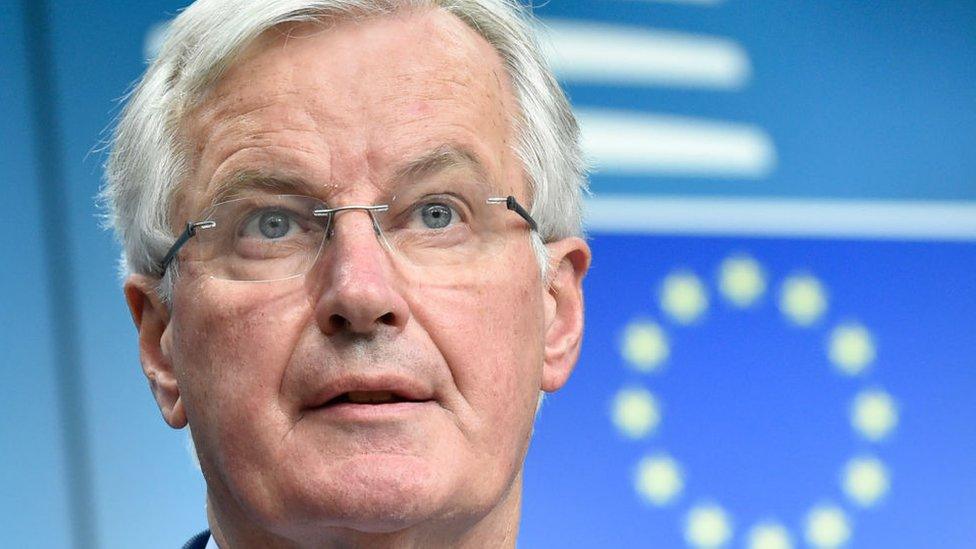
Some in government suggest that this formulation runs counter to the mood music Mr Barnier has created around the chances of financial services being part of any free trade deal between the UK and the EU.
"I remind you that I'm not aware of any free-trade deal in the past between the European Union and third countries that would have allowed privileged access for financial services," Mr Barnier told a news conference in Brussels in December.
That came a few days after an interview with several European newspapers in which Mr Barnier said: "There is not a single trade agreement that is open to financial services. It doesn't exist."
Well, Mr Hammond is suggesting in his speech, the EC proposed it should exist between the EU and the US before the TTIP deal ran into the sand of President Donald Trump's America First policy on free trade.
No comparison
The EC can counter that the two scenarios do not bear comparison.
Regulatory co-operation is very different from being a member of a financial services single market as the UK is at present.
And if Britain thinks it is going to replicate that, it has another think coming.
Passporting agreements - which allow banks to operate freely across EU borders with a single national licence - are not going to be extended to the UK outside the EU.
There may be some regulatory "equivalence" agreements between the UK and the EU on financial services, allowing for some banking operations to continue between the two sides.
As Mr Hammond says, that is mutually beneficial.
But, the EU is arguing at this stage, that is a long way from a comprehensive free trade deal on financial services.
Battling the 'sceptics'
The Chancellor has taken up a strong and oppositional stance against those who say that because there has never been a free trade deal including financial services agreed by the EU - which is true - there never will be.
The "sceptics" as Mr Hammond describes them.
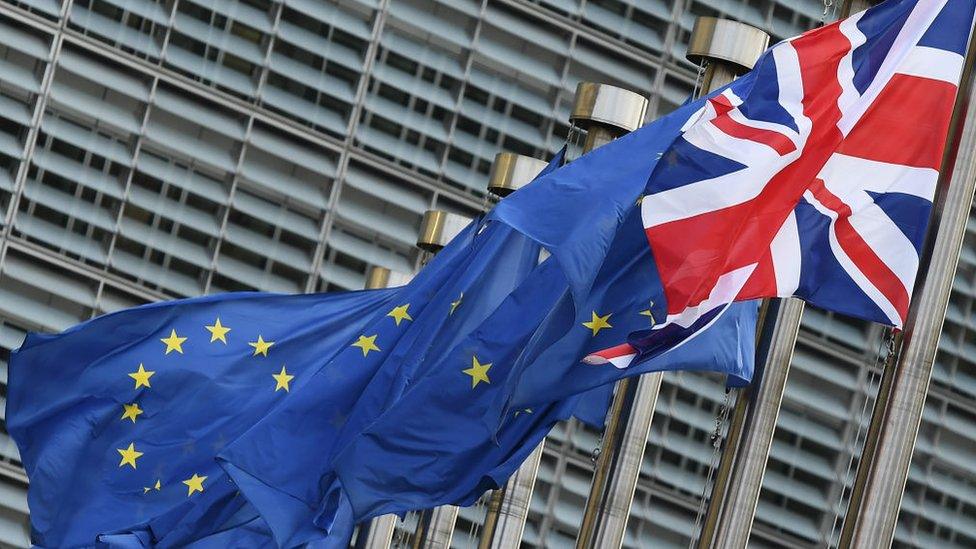
The Chancellor - and in this he is supported by the Governor of the Bank of England, Mark Carney - argues the two statements do not logically follow.
For if they did, the EU would only do exactly the same trade deal time after time.
Which is not true when you look at the relationship between the EU and, say, Switzerland, Canada and Turkey, Mr Hammond argues.
Each of those arrangements is "bespoke" the Chancellor says.
Mr Barnier has a straightforward retort.
This may not be an issue of having your cake and eat it.
Theresa May appears to accept, for example, that some City access to the EU will be curtailed.
But it is no time to compare apples - TTIP - and pears - a comprehensive free trade deal including financial services between the UK and the EU.
- Published7 March 2018
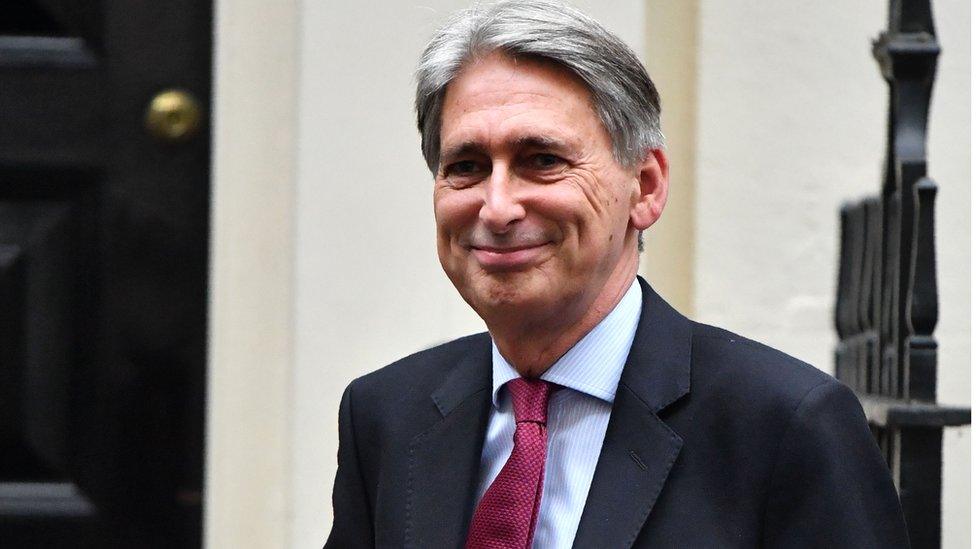
- Published4 March 2018
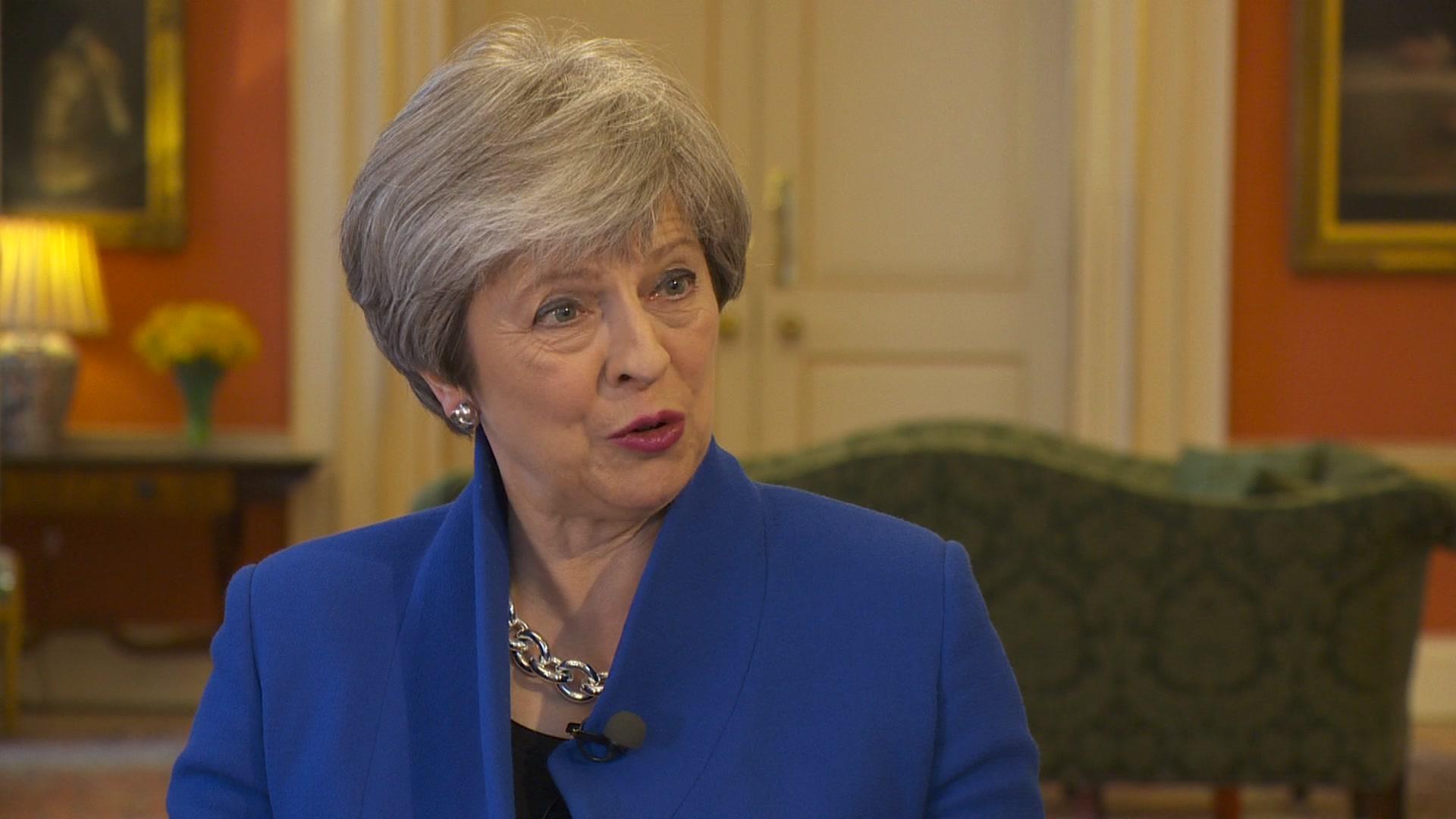
- Published30 December 2020

